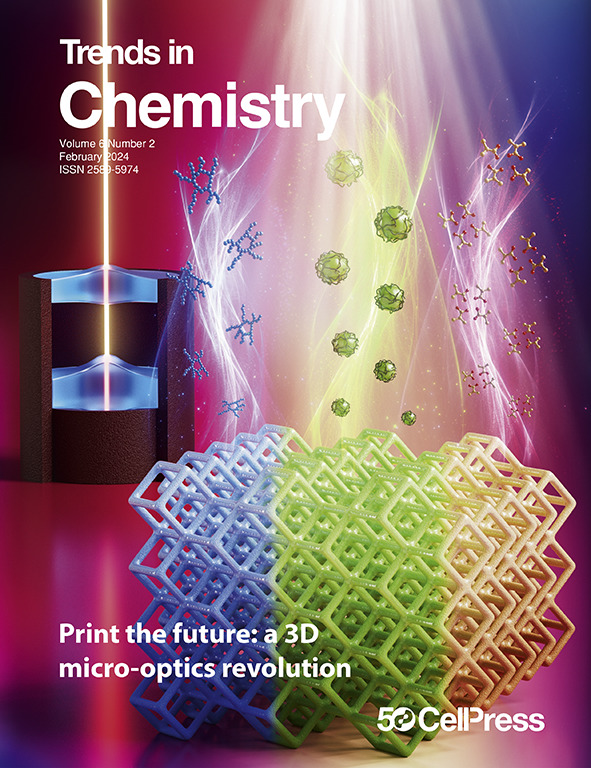减轻高温单分子磁体的拉曼弛豫
IF 13.6
2区 化学
Q1 CHEMISTRY, MULTIDISCIPLINARY
引用次数: 0
摘要
以往关于延长单分子磁体弛豫时间的研究主要集中在减轻量子隧穿效应上。然而,最近的进展表明拉曼弛豫更为关键。然而,拉曼过程的研究被证明是分子系统的一个贫瘠地带,需要进一步的探索。本文章由计算机程序翻译,如有差异,请以英文原文为准。
Mitigating Raman relaxation for high-temperature single-molecule magnets
Previous studies on how to prolong the relaxation times of single-molecule magnets (SMMs) focus on mitigating the quantum tunneling effect. However, recent progress shows that Raman relaxation is more critical. Yet, the study of the Raman process turns out to be a barren zone for molecular systems and requires further exploration.
求助全文
通过发布文献求助,成功后即可免费获取论文全文。
去求助
来源期刊

Trends in Chemistry
CHEMISTRY, MULTIDISCIPLINARY-
CiteScore
28.00
自引率
0.60%
发文量
138
期刊介绍:
Trends in Chemistry serves as a new global platform for discussing significant and transformative concepts across all areas of chemistry. It recognizes that breakthroughs in chemistry hold the key to addressing major global challenges. The journal offers readable, multidisciplinary articles, including reviews, opinions, and short pieces, designed to keep both students and leading scientists updated on pressing issues in the field.
Covering analytical, inorganic, organic, physical, and theoretical chemistry, the journal highlights major themes such as biochemistry, catalysis, environmental chemistry, materials, medicine, polymers, and supramolecular chemistry. It also welcomes articles on chemical education, health and safety, policy and public relations, and ethics and law.
 求助内容:
求助内容: 应助结果提醒方式:
应助结果提醒方式:


